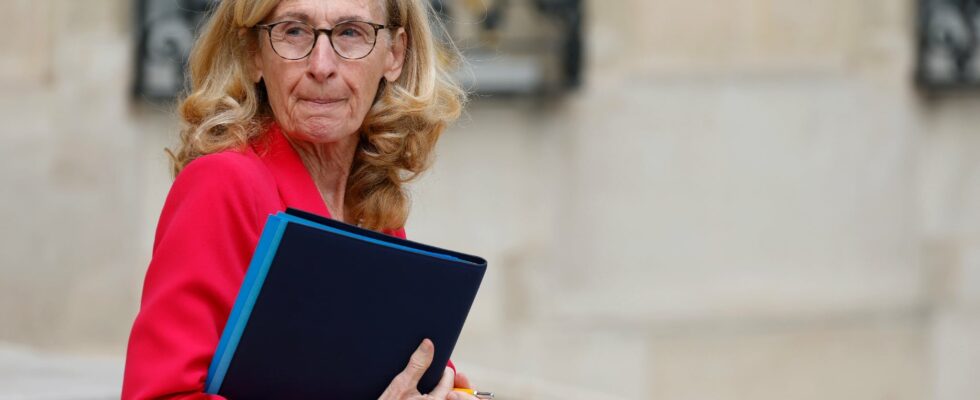The resigning Minister of National Education, Nicole Belloubet, requested on Tuesday 27 August that the National Education budget be “at least protected”, judging that at this stage, the budgetary project sent by Matignon to her ministry “does not meet all of our needs”.
“I believe that consistency would require that the National Education budget be at least protected. The next government will have to pay close attention to this if it wishes to maintain real ambition for this national priority,” declared the minister during her back-to-school press conference.
“The ceilings that have been sent to our ministry would force us to be particularly budgetaryly rigorous, particularly when we know the impact of a certain number of measures (…) This budget, which at this time does not, from my point of view, meet all of our needs, is not yet complete,” she added.
“Ceiling letters”
Last week, Gabriel Attal sent the ministries the “ceiling letters” of a 2025 budget project, for which he proposes the exact renewal of the total credits, with his successor having to put his political stamp on it. The National Education budget is the State’s first budget. Last February, Bercy had requested approximately 700 million in additional savings from National Education compared to the budget voted for 2024, which totaled 63.6 billion euros.
The identical renewal of total credits results, according to Matignon which speaks of a “reversible budget”, in a real saving of some 10 billion euros compared to a budget which would have passed on 2% inflation. The draft Finance Law (PLF) must be submitted to Parliament on October 1, after a whole series of examinations and opinions in September (by the High Council of Public Finances, by the Council of State, by the Council of Ministers), and before the discussion in the Assembly.
Setting up level groups
The level groups in 6th and 5th grade in middle school, a controversial measure by the outgoing government, will be implemented “with flexibility and pragmatism”, declared Education Minister Nicole Belloubet.
“I wanted this reform to be implemented. But I also wanted it to be implemented with pragmatism and flexibility. It is up to the establishments and teams to act to achieve the objectives of the reform,” said the resigning Minister of Education.
Announced by Gabriel Attal, then Minister of National Education, but vilified by a large part of the educational world, the level groups renamed “needs groups” by Nicole Belloubet, aim to make “all students progress in mastering fundamental knowledge by taking better account of their diversity”, the minister said.
A new version of the patent
She also clarified the uncertainty about the future of the brevet, which is evolving into a new version from the 2024/2025 school year. The heads of establishments asked that the minister make announcements on this subject before September 2.
“The new assessment methods for the 2025 brevet session concern the transition from 50/50 to 40/60 to increase the share given to end-of-year exams, the consideration of all 3rd year disciplines for the 40% of continuous assessment and the establishment of academic harmonization committees,” explained the minister. Due to the political context, “these texts on the new assessment methods had to be postponed. As soon as this period ends, we should be able to ensure their publication so that they can come into force for the 2025 brevet,” she promised.
She also specified that obtaining the brevet will probably not be mandatory for moving up to the second year of secondary school. “These new assessment methods are not necessarily correlated with the obligation to obtain the brevet to enter high school, the decree provided for this purpose being frozen at this stage.”
The experiment of the ban on mobile phones
Following the recommendations of the screen commission wanted by Emmanuel Macron, the resigning minister also announced the experiment of banning mobile phones in 200 colleges before a possible generalization of this “digital break” in January 2025.
More generally, regarding the context of this particular return to school, she mentioned a “somewhat unprecedented context on the political level” but “current affairs are neither a suspended time for school, nor a dead time. It is a time for action because school does not wait”, she justified.
